Large areas of Eastern Highlands have been reduced to expansive grassland with often uncontrolled fires damaging fallow plants and forest resources – fruit, nuts, timber. There is a pressing need to turn ongoing degradation into renewal and re-creation. CDWAI team members provide training and demonstrations in the use of varied technologies that local farmer/gardeners can test in their own garden system. A key to these improvements is the minimal cost and an approach that ensures that technologies promoted add benefit to the garden systems. That means more food and cash income for families. Not less!
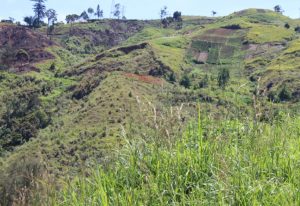
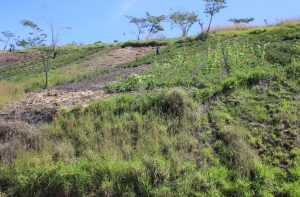
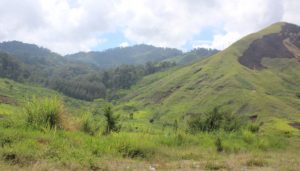
Cash crops are often pineapple – a crop that leaves sloping soils very susceptible to damage from heavy rain and hot soil. How do we know that damage is occuring? We measure soil loss in traps; we look at soil at the start of the garden cycle and again in old gardens. In these old gardens, fine top soil particles are lost. Gone. Washed away. These are hard to replace. The CDWAI team are committed to helping local farmers produce highly nutritious food (esp. beans) and cash crops while caring for their God given land.
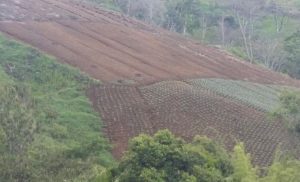
1. Use of mulch to reduce damage from heavy rain and hot sun. Mulch of green manure legumes and wild sunflower for P and K enrichment.
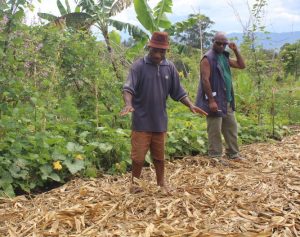
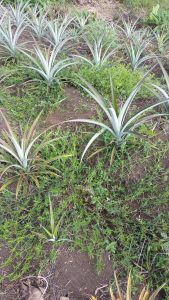
2. On sloping land, use of contour ditches (developed by appropriate use of A-frame as taught by CDWAI trainers) and plants which contribute food for people or soil or livestock. Eg Wild sunflower and pigeon pea.
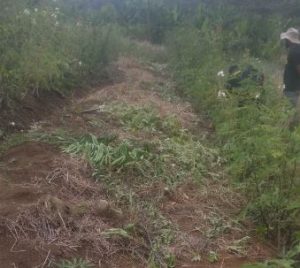
3. In fallow gardens, instead of weeds the likes of (in likely order of importance) Cowpea (Vigna sinensis), Dolichos lablab, P. coccineus, P. lunatus, Stylosanthes sp. and Pigeon pea (Cajanus cajan) will be contributing nitrogen rich material for soil organic matter improvements, reducing farmer need to burn for garden development.
4. Barriers in ditches – catching soil instead of exporting to rivers and causing pollution and soil fertility losses.

5. Drought preparedness – Rice, maize, banana, cassava and African yam will all contribute to drought food for families. Bean seeds of cowpea, Dolichos, Phaseolus species, yard long bean – all contribute to food / leaves and dry or fresh seeds.
6. Dry seed storage – managing moisture and insects – especially weevils which destroy stored seeds.
The Community Development Workers Association (Inc) say a big thankyou to the Christchurch based Dove Trust for their support towards training and local travel costs.